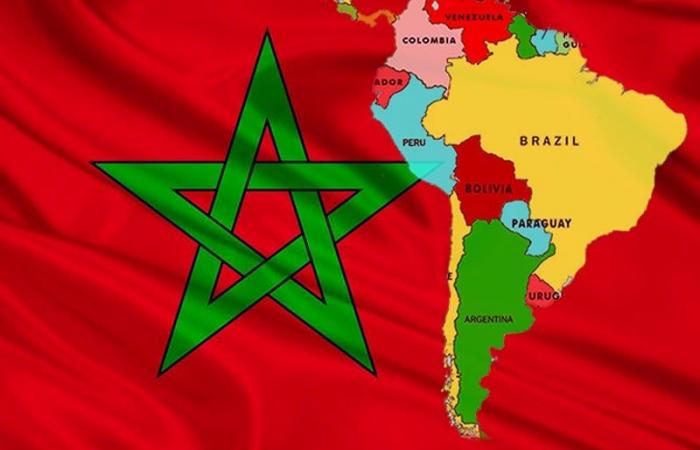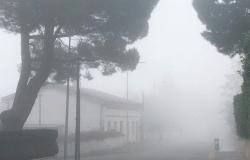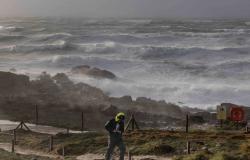In 2024, France made a historic change of position regarding the Moroccan Sahara. She recognized that the seriousness, credibility and pragmatism of the Moroccan position, namely the autonomy plan proposed by the King in 2007, is the one and only credible solution both from a historical point of view but also legal and geopolitical, to definitively end the artificial conflict concerning the Southern Provinces. If this new position and the visit made by President Macron marked the diplomatic year, let us nevertheless focus on the successes obtained by the Kingdom, throughout the year which is ending, in Latin America.
The development of bilateral and multilateral relations and the process of consolidating relations with the parliaments of Latin America is a strategic choice for Morocco, within the framework of South-South cooperation. The Kingdom has two objectives in Latin America:
– a diversification of its economic partners, in order to strengthen its position as a gateway to the African market
– additional support for the autonomy plan for the Southern Provinces.
The port of Dakhla is one of the structuring projects making it possible to combine these two objectives and give Morocco a geopolitical status and a geoeconomic role. As part of the Royal Initiative aimed at facilitating access for Sahel countries to the Atlantic Ocean, the port of Dakhla will make it possible to establish this facade of the Kingdom as a logistics connection platform between Morocco, Africa and the Latin America, in order to develop trade and consolidate investment mechanisms, within the framework of ambitious South-South cooperation based on concrete projects as the King has always promoted.
A detailed analysis, by having a specific approach by Latin American sub-regional group and by country, therefore requires us to move away from this vision of Latin America as being a coherent whole. Each Latin American country develops its own foreign policy according to its national interests, whether in relation to the Kingdom or in relation to the adversaries of Moroccan territorial integrity. This diversity makes it difficult to develop a coherent overall vision for the entire region.
The Chilean Minister of Foreign Relations, Alberto Van Klaveren Stork, affirmed his country’s constant support “for the process led by the United Nations within the framework of the initiative presented by Morocco to the United Nations in April 2007.” In Paraguay, both Chambers of the National Congress expressed, at the end of 2024, clear support for the Moroccan autonomy plan as the sole basis for settlement and on the other hand by asking their government to adopt a similar position.
Ecuador’s change in position is very positive, because its position of support for the separatists dates back to 1983. This turnaround therefore testifies to a strong desire by President Noboa to open a new page with the Kingdom and launch a new dynamic. and to distance themselves from ideological considerations, linked to a Cold War context. Same thing for Panama, which supported the separatists since 1978, and which this year decided to withdraw its recognition of the pseudo “SADR”.
Let’s continue talking about Central America. The transition of the Moroccan Parliament from the status of “permanent observer member”, granted in 2014, to that of “advanced partner”, voted unanimously by the members of FOPREL, is a significant step forward for the Kingdom, which is anything but symbolic . It ensures the Kingdom’s elected officials a permanent presence within the Forum in order to advance the Sahara issue, relying on Panamanian and Salvadoran elected officials, and South-South economic and commercial co-development projects through parliamentary diplomacy. This new status could of course strengthen Morocco’s position within international bodies concerning the Sahara because it gives it an additional opportunity to advance its historical, political and legal arguments in a region which knows little and little about this artificial conflict and in which a certain ideology has sought to harm it for almost 50 years.
Finally, let us analyze the deepening of relations between Rabat and Brasilia. Cooperation between Morocco and Brazil in defense dates back to 2019, but cooperation accelerated in 2024, in particular with Morocco’s desire to create zones dedicated to the defense industry and to move towards a sort of autonomy in this area. This very ambitious strategic project is supported by the Sovereign. Brazil is one of the partner countries that can provide Morocco with its contribution to achieving this strategy of progress towards autonomy in the defense industry, particularly with regard to technology transfer. Indeed, this country is the regional leader because it alone monopolizes 40% of total investments in the field of defense in Latin America.
Brazil is also an increasingly important economic partner with regard to the Kingdom’s Atlantic strategy, a real additional lever for relations between the two countries in the decades to come. Tanger-Med and Dakhla-Atlantique are two essential logistics platforms for the Brazilian strategy in terms of international trade. The two countries can play a key role by joining forces on the central issue for the world of food security (Moroccan fertilizers and Brazilian agricultural productivity). Without forgetting, the proposed free trade treaty between the Kingdom and MERCOSUR, of which Brazil is the leader. The United States to the north of the Atlantic is Morocco’s major partner, and to the south, there is obviously Brazil, which has never recognized the pseudo SADR.
Taking into account these different elements, the Kingdom has a clear interest in continuing to deepen its relations with Latin American countries. In addition, Morocco, since 2024, has been a leading candidate for a permanent seat, on behalf of Africa, within the UN Security Council. The Sherifian Kingdom, under the leadership of the King, meets the criteria through its stability, its ambitious foreign policy and its historic role as a bridge between Africa and Europe, and increasingly between Africa and America. Latin. It is the only one to bring together its strategic advantages, the fruit of its history, its geography and its original and ambitious foreign policy.
*Professor of Strategic Studies at the National Defense College of the United Arab Emirates






